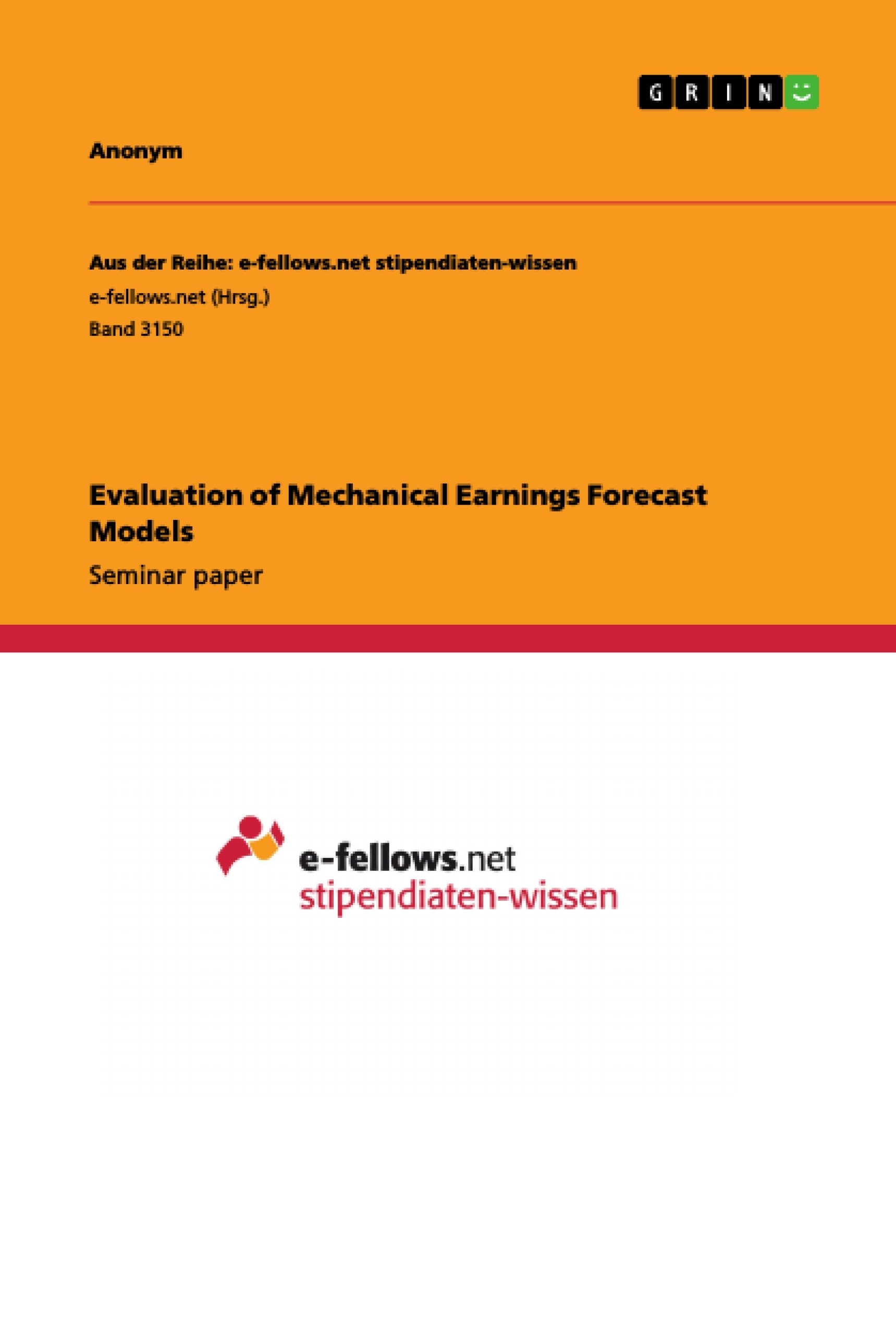Abstract or Introduction
This paper seeks to examine different models to forecast revenue of companies. This is being achieved by examining costs of capital, which are a good representative therefor. The models examined in this paper can be divided into two sections. First, there are mechanical models, second there is one characteristic-based model. The models stand in contrast to analysts’ forecasts. This paper sums up different authors who illustrate, that mechanical models outperform analysts’ forecasts in terms of revenue forecasting. First, the HVZ mode is introduced which is due to outperform analysts’ forecasts. Second, the EP and RI model are introduced, next to a random walk model (RW model) as a benchmark. Objective of this paper is to find out which advantages go along with mechanical models, and whether the quality of forecast could be influenced positively.
The topic of revenue forecast is highly relevant for different stakeholders in the financial industry. Based on revenue forecasts investment decisions are met by investors. One advantage of mechanical models therefore, is the greater feasibility due to the greater coverage. Mechanical models rely on firm fundamentals and are hence available for much more companies. Analysts’ forecasts are only available for firms of a certain size upwards. Costs of capital are a topic of focus not only for investment decisions but also for internal application. Apart from the use as a financial ratio it is negatively associated with customer satisfaction.
The paper finds out, that the HVZ model outperforms analysts’ forecasts in terms of forecast bias and earnings response coefficient. However, the HVZ model does not outperform analysts’ forecasts in terms of accuracy. The EP and RI model both outperform the HVZ model in terms of all three criteria: forecast bias, earnings response coefficient and accuracy. The characteristic-based model sets up a linear function solely by firm fundamentals, that avoids including unobservable future covariances. Besides, it concludes certain key findings about abnormal earnings volatility and economy-wide risk.
- Quote paper
- Anonymous, 2018, Evaluation of Mechanical Earnings Forecast Models, Munich, GRIN Verlag, https://www.grin.com/document/491784
Publish now - it's free






















Comments